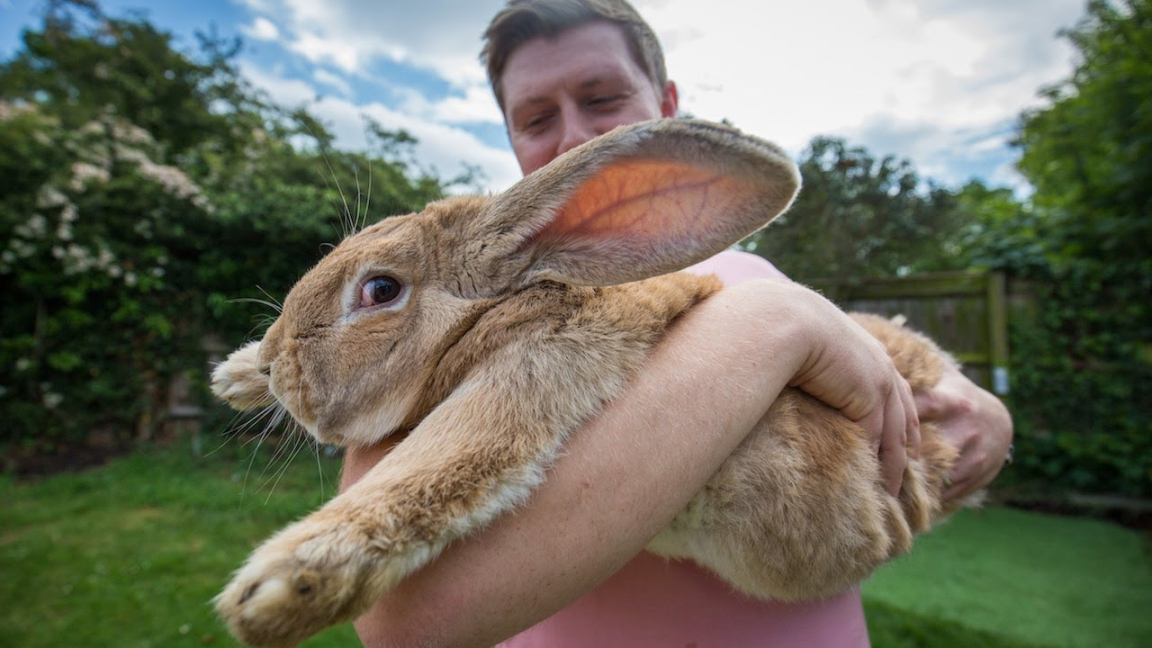How Big Does a Rabbit Get?
Many people are drawn to the idea of having a pet rabbit. These small, fluffy creatures can make wonderful companions and bring joy to any home. However, before getting a rabbit, it is important to understand how big it can get. The size of a rabbit can vary depending on its breed, genetics, and overall health. In this article, we will explore the different sizes of rabbits and provide some useful information for potential rabbit owners.

Sizes of Rabbits
Rabbits come in various sizes, ranging from small to large breeds. The size of a rabbit is primarily determined by its breed, but individual genetics and care can also play a role. Let’s take a closer look at some common sizes of rabbits:
- Small Breeds: Small breeds of rabbits typically weigh between 2 to 4 pounds (0.9 to 1.8 kg). Examples of small rabbit breeds include the Netherland Dwarf and the Mini Lop. These rabbits are often preferred by people with limited space or those looking for a more portable pet.
- Medium Breeds: Medium-sized rabbits usually weigh between 4 to 7 pounds (1.8 to 3.2 kg). The Holland Lop and the Lionhead are popular medium-sized rabbit breeds. They offer a balance between the small and large breeds, making them suitable for a variety of living situations.
- Large Breeds: Large rabbit breeds can weigh anywhere from 7 to 15 pounds (3.2 to 6.8 kg). The Flemish Giant and the French Lop are examples of large breeds. These rabbits require more space and may not be suitable for small apartments or confined living areas.
It is worth noting that these weight ranges are just general guidelines. Each rabbit is unique, and individual genetics can cause some variations in size even within the same breed.
Factors Affecting Rabbit Size
While breed is the primary factor determining a rabbit’s size, there are other factors that can influence its growth. These factors include:
- Genetics: Each rabbit has its own genetic makeup, which can influence its size. Some rabbits may have genes that make them naturally larger or smaller than others of the same breed.
- Diet and Nutrition: A rabbit’s diet plays a crucial role in its growth and overall health. Providing a balanced diet that includes fresh hay, vegetables, and a limited amount of pellets can help ensure proper growth.
- Environmental Factors: The environment in which a rabbit lives can affect its growth. A spacious and stimulating living area with opportunities for exercise can contribute to a healthier and more active rabbit.
- Health and Care: Proper veterinary care, regular exercise, and a stress-free environment are essential for a rabbit’s well-being. Neglecting these aspects can negatively impact a rabbit’s growth and overall health.
FAQs
How fast do rabbits grow?
The growth rate of rabbits varies depending on their breed. Generally, rabbits experience rapid growth in their first few months of life and reach their full size within six to twelve months.
Can you control the size of a rabbit through diet?
A: While diet can influence a rabbit’s growth, it is important to note that size is primarily determined by genetics. Feeding a rabbit a proper diet will ensure healthy growth, but it will not significantly alter its overall size.
Are there any health issues associated with large rabbit breeds?
Large rabbit breeds are generally healthy, but they may be more prone to certain health issues such as arthritis or obesity. Regular veterinary check-ups and a balanced diet can help manage these concerns.
How much space does a rabbit need?
Rabbits require enough space to exercise and explore. A minimum of 12 square feet of living space is recommended, but more space is always better for their physical and mental well-being.
Understanding how big a rabbit can get is important for potential owners to ensure they can provide adequate care and living conditions. By considering the breed, genetics, and proper care, you can ensure that your rabbit thrives and grows into a happy and healthy companion.
Related Articles…
Copyright Notice:
This website utilizes images found online, all copyrights are retained by their original owners. If you would like an image removed, kindly contact us.